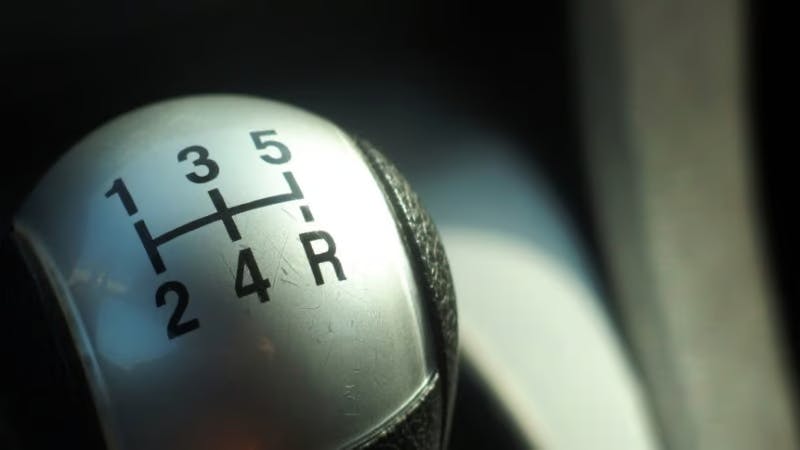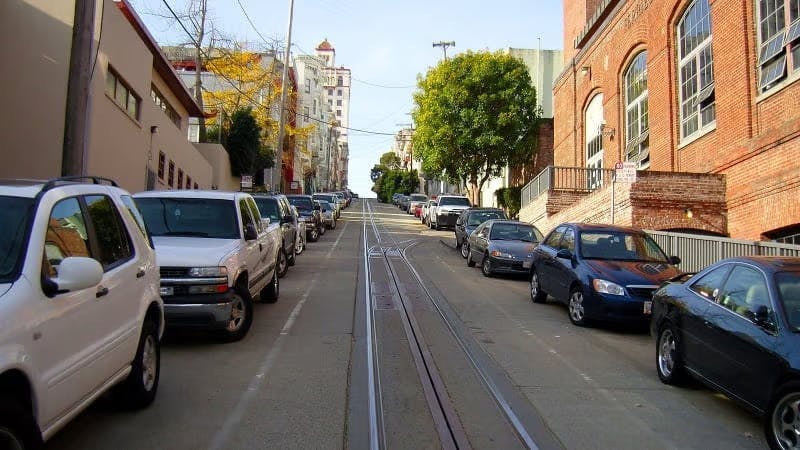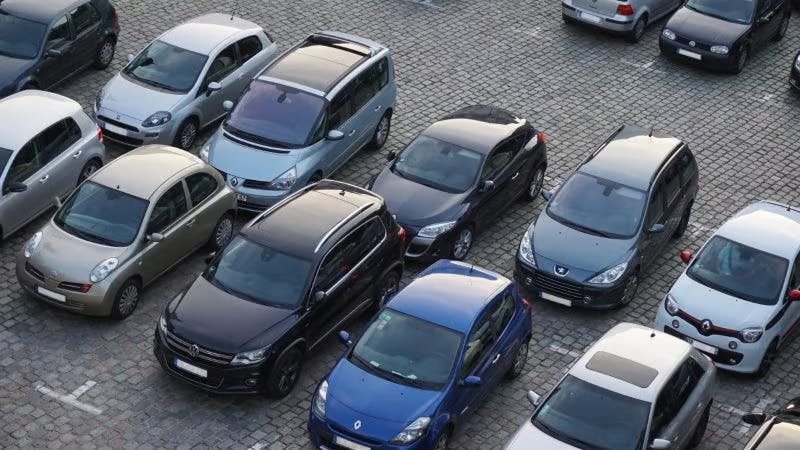
It's a nightmare scenario for any driver: leaving your car parked on a slope, only to return later to find that it's rolled all the way down the hill. Of course, your handbrake should be activated to prevent this from happening — but, if the handbrake fails, it's good to have a backup. This is where your gears can come into play. Leaving your car in gear can act as a failsafe in such a scenario, preventing your car from moving if your parking brake doesn't work.
Nonetheless, not every driver adopts this technique. We'll explore why it's so important (and easy!) to ensure you leave your car in gear when parked in certain places.
When to leave your car in gear when parked

The principal benefit of leaving your car in gear is that doing so prevents it from rolling away. This means that, while it isn't necessarily a bad idea to keep your car in gear when you're on flat ground, it's most important to do so when you're parked on a hill.
To get exact advice, we turned to the Highway Code: the fountain of all knowledge when it comes to driving in the UK. They advise that, when you park on a hill, you should:
- Park close to the kerb and apply the handbrake firmly
- Select a forward gear and turn your steering wheel away from the kerb when facing uphill
- Select reverse gear and turn your steering wheel towards the kerb when facing downhill
- Put your car into 'park' if it has an automatic gearbox
The logic behind this is sound: in the unfortunate event that your parking brake fails, your engine should prevent your wheels from rolling. This also explains why you'll need to select a forward gear if facing uphill and to go into reverse if facing downhill—you essentially want your car's engine to counteract the effects of gravity.
Should I leave my car in gear all the time?

It's pretty clear that leaving your car in gear when parked on a hill is a good move. But what about more level terrain? Is it still worth being cautious here—or are there any downsides?
Well, for starters, it's worth noting that a road doesn't necessarily need to be particularly steep for rolling to become a problem. If your driveway is on a slight incline, for example, your car could still end up rolling back into the road—something you'd definitely want to avoid!
Let's say, though, that you're on a perfectly flat surface (or as close to it as possible). In such instances, it's generally okay to leave your car in neutral. Indeed, speaking to Which?, Mark Lewis of the Institute of Advanced Motorists noted that “there is little need to leave a manual vehicle in gear when parked and unattended if the parking brake is working effectively”.
Nonetheless, getting into the habit of leaving your car in gear whenever you park means you're likely to remember it when it really counts—and there are few downsides to doing so. You will, however, need to make sure you check your car is in neutral every time you start the engine—but, as this should be part of your cockpit checks whenever you drive, this should come naturally to you anyway!
How many drivers leave their car in gear when parked?

Given that the Highway Code advises all drivers to leave their car in gear when on hills, you'd expect this to be common practice. However, figures from Which? suggest that not everyone is carrying out this simple safety technique.
In a survey, 25% of drivers admitted that they never left their car in gear when parked, even when on a hill. Meanwhile, a larger proportion (35%) said that they always left their car in gear, regardless of the surface.
Our advice is that leaving your car in gear is an easy way to prevent accidents when parked—and, as such, it's a good idea to use it in a range of scenarios. Of course, if you're totally sure that your parking brake is in good nick, and plan on sticking to flat ground, you probably won't encounter too many issues if you leave your car in neutral. Still, it's always better to be safe than sorry!
Subscribe for driving advice, offers & more
We'd love to let you know about our courses, news and offers via email. You may unsubscribe at any time.
Star Genie Limited trading as PassMeFast. Company number 10093359
Copyright © 2024 owned by Star Genie Limited
PassMeFast, Blue Tower, MediaCityUK, Salford, M50 2ST
